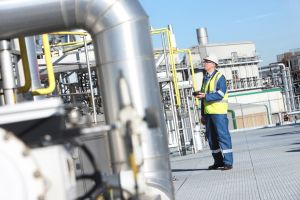
Risk Based Inspection Services
10,000 Per Day
The oil and gas, as well as the petrochemical industries, are under constant pressure to decrease risks and enhance safety and environmental challenges. Owners continue to make ongoing efforts to minimise production costs and improve maintenance procedures.In the hydrocarbon and chemical process sectors, as well as offshore pressure systems, the ALPHA SONIX team has extensive expertise designing risk-based inspection (RBI) procedures on fixed equipment and pipelines. These programmes are based on API RP 580, API RP 581, DNV-RP-G101, and best engineering practises and client specifications, as well as API RP 580, API RP 581, and DNV-RP-G101. Software and technology implementation are used to supplement the programmes.WHAT IS RISK-BASED INSPECTION (RBI) AND HOW DOES IT WORK?Risk-Based Inspection (RBI) is an analysis methodology and process that, unlike condition-based inspection, necessitates a qualitative or quantitative assessment of the probability of failure (PoF) and consequence of failure (CoF) associated with each equipment item in a process unit, including piping circuits. Individual pieces of equipment are categorised by their hazards in a fully implemented RBI programme, and inspection activities are prioritised according on this category. A proper inspection and maintenance programme is then designed based on an estimate of the possibility and implications of failure associated with each piece of equipment, component, or structure.WHAT IS THE IMPORTANCE OF RISK-BASED INSPECTION AND MAINTENANCE?RBI is used to detect and comprehend risk, risk drivers, and the lifecycle of equipment. RBI can determine whether an inspection is required; however, this requires additional data that is highly targeted in order to reduce the underlying uncertainties connected with the hazards associated with the equipment's existing and expected damage status. When an inspection will not improve knowledge of the damage situation, RBI should not be used to recommend it. RBI should highlight to alternate risk mitigation measures such as replacement, repair, or other activities that satisfy the risk criteria in those circumstances where PoF is driving the risk.RBI is critical for maximising the efficiency of industrial plants in a variety of industries. It enables you to meet the industry's financial, dependability, and regulatory requirements by enhancing the performance, availability, and safety of your facility. It establishes a long-term testing and inspection programme, which extends the life of your plant.